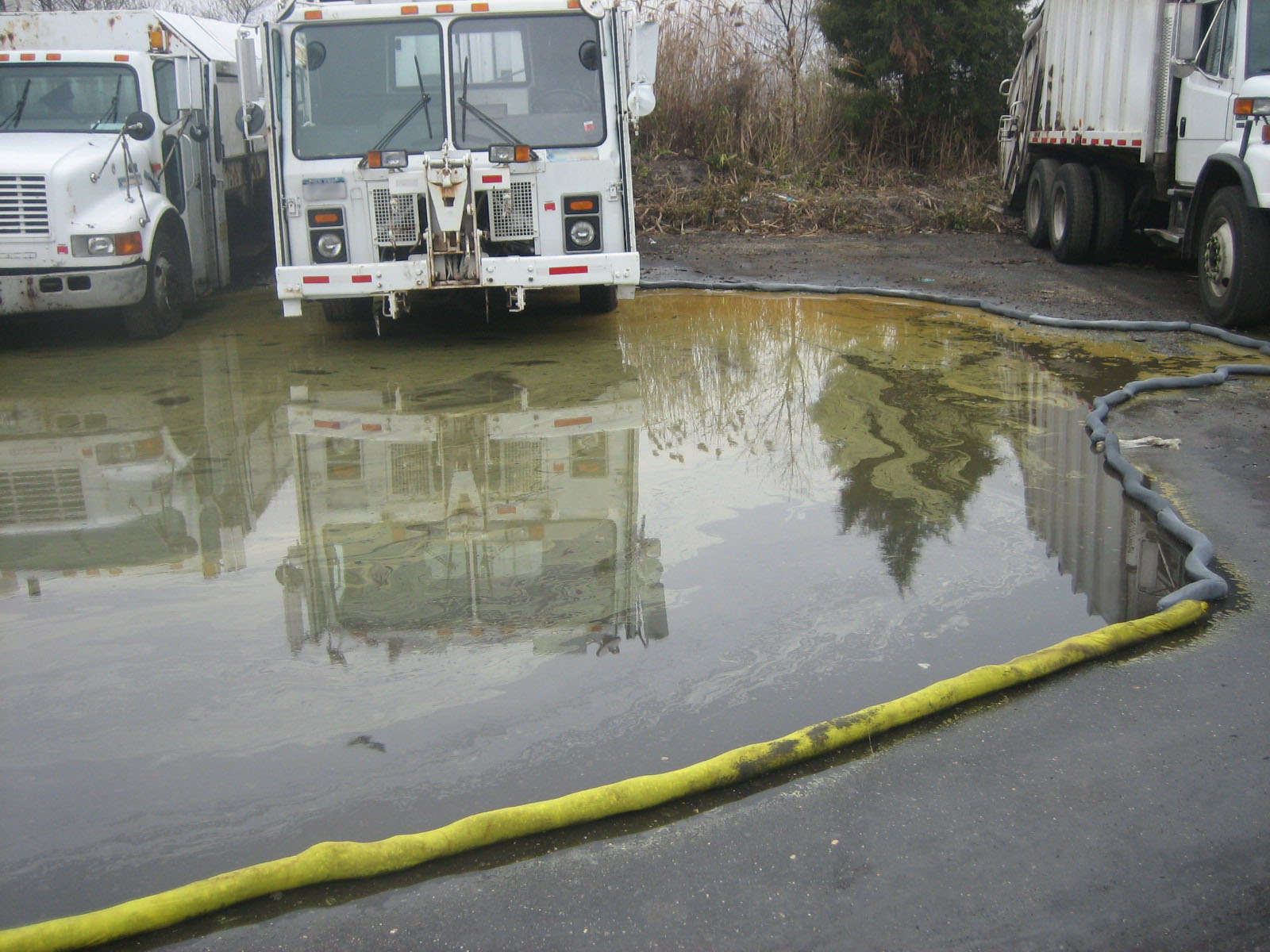When Do You Need to Report Spills in New York State?
According to the New York State Department of Environmental Conservation (DEC), there are about 16,000 confirmed and suspected spills that get reported to the agency each year. Of those 16,000 spills, about 90% involve petroleum products. It is important to know what kinds of spills need to be reported to the DEC in order to limit environmental impacts and to avoid being penalized or fined for failure to report.
What kinds of spills need to be reported?
Spills involving the following contaminants are subject to DEC reporting requirements:
- Petroleum
- Liquid pollutants that could harm New York’s waters and lands
- Hazardous substances, as defined in Article 37 of the Environmental Conservation Law
- Hazardous wastes
- Radioactive materials
- Radioactive wastes during transport
Petroleum spills are reportable under four conditions:
- The spill involves five (5) or more gallons of product
- The spill cannot be cleaned up within two (2) hours of its discovery
- The spiller cannot contain or control the spill
- The spill threatens New York’s waters or lands
If a spill meets any of these requirements, it is considered a reportable spill. Once a spill is reported to the DEC, the agency will assign a spill number to the case and will send a representative to the site to evaluate the release and response activities taken to mitigate the problem. The DEC will also determine what follow up actions are appropriate, if applicable.
The importance of reporting and remediating spills
If spills are not reported and remediated as soon as possible, it could lead to a multitude of environmental problems. Chemicals can seep into our groundwater and make water unsafe to drink. Hazardous vapors can waft into buildings. Spills can also harm wildlife by injuring or killing native animals and plants.
The Greenpoint Oil Spill is a prime example of the issues that can occur if spills are not remediated properly. According to the Newtown Creek Alliance, three major oil refining operations in Brooklyn, New York had leaked oil and refining products into Greenpoint’s soils and aquifers over the course of 140 years. The spillage was identified in 1978, and the DEC reports that remediation to clean up soils and waters impacted by the release is continuing to this day. Testing in 2006 and 2007 provided evidence of the presence of methane gas, an explosive chemical, and benzene, a carcinogen, in soil vapor almost 30 years after the spill was reported.
Spill remediation options
In some cases, depending on the spill characteristics, site conditions and response actions, a site investigation might be required to delineate the extent of contamination associated with a release. Large scale spills that have caused significant environmental impacts will require remediation. Systems employing techniques including soil vapor extraction, groundwater pumping and treatment, sub-slab depressurization, and others are commonly utilized to remediate contamination resulting from spills.
These systems will need to be designed, implemented, and maintained by environmental professionals. If you have a spill and need help with its reporting, response, investigation and remediation, Walden is here for you! Visit our website at https://waldenenvironmentalengineering.com/ or give us a call at 516-758-1273 for more information.

For assistance with spill reporting and remediation, contact Walden at 516-758-1273.
